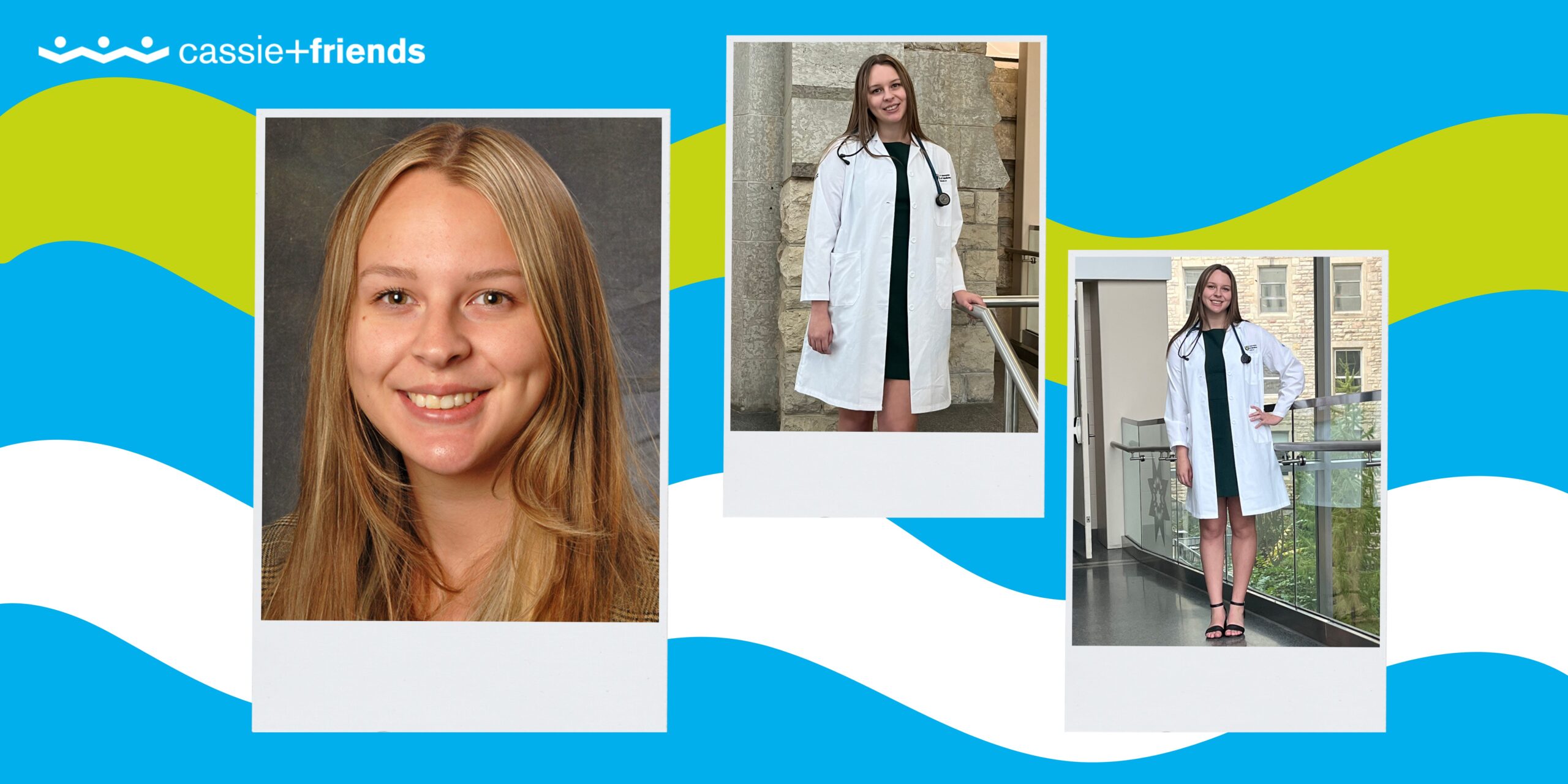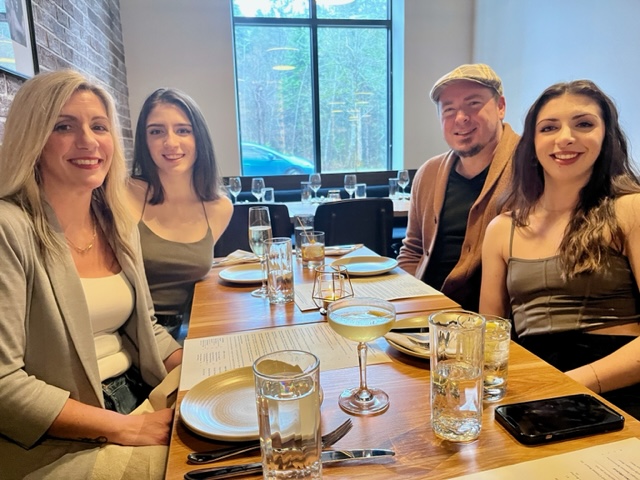Post Secondary School and Rheumatic Disease
Attending post- secondary education is an exciting time in one’s life as you will take on more responsibilities, become more independent and learn to manage your rheumatic disease as a young adult. Before your first day of school, it is important to learn more about the resources and supports available to you in order to make a smooth transition to life on campus! We’ve put together resources, ways to get involved and scholarship opportunities specifically all for youth living with rheumatic disease below for your reference.
Transition from high school to post secondary
One of the biggest changes from high school to post-secondary school is taking responsibility for your own education and accommodations. Universities and colleges across Canada have accessibility services that offer accommodations to students with chronic conditions to support your specific needs and ensure you succeed. It is important that you connect with accessibility services department at your school as soon as possible (even if you don’t think you’ll need it right now) to make sure accommodations can be in place when flares occur. Depending on your needs, this may allow for more flexibility when writing exams, accessing notetaker services, navigating unexpected absences and upcoming deadlines when symptoms are flaring.
Along with transitioning from secondary to college/university, during this time in your life you may also be in the process of transitioning from pediatric to adult rheumatology care. To learn more about clinic transition, please click here.
It is important to remember that each individual’s experience at college/university will differ and so will the path to get the accommodations necessary to you. Working with your care team and the Accessibility Services department at your school will help ease the transition to a new campus and course load. Below, we’ve listed some common considerations and tasks that may help students with rheumatic disease:
Considerations:
- A balanced class schedule and manageable course load
- Necessary classroom and exam accommodations
- Distance between classes, residence and parking lots/transit services, as well as access to elevators
- Proximity to a clinic from your residence
Additional considerations when moving to a new city for post secondary education:
- Familiarize yourself with a new clinic or meet virtually with your current rheumatologist
- Transfer medications to a new pharmacy and create a routine
- Ensure your dorm room and residency building is suitable for your needs (ie. room on the first floor, close proximity to facilities, etc.)
To make your transition from high school to post secondary, C+F Youth Leader, Kayla Caddy, created a University Transition Checklist to help you prepare for the changes in advance!

get involved

Volunteer Credit & Opportunities
Are you look to gain volunteer hours? Cassie + Friends offers various volunteer roles throughout the year in fields such as mentorship, event planning (in-person and virtual), run/walk participant recruitment, social media assistance, website maintenance and general administrative tasks. If you’re interested in learning more about getting involved, click here!
After completion, Cassie + Friends is able to provide letters of volunteer hour credit or reference letters towards post-secondary education applications.

U of T Rheumatic Disease Club
The University of Toronto Rheumatic Disease Club was founded by Ciara Mahaffy, a youth mentor with Cassie + Friends. This student-led group is committed to raising awareness about rheumatic diseases, building community connections, and supporting rheumatic disease research at U of T. The club welcomes students living with rheumatic diseases and allies who want to get involved in advocacy and education.The club is proud to support Cassie + Friends. Find them on Instagram: @uoftrheumaticdisease

Queen’s Rheumatic Disease Club
The Queen’s Rheumatic Disease Club is a student-led group at Queen’s University, made up of students living with rheumatic diseases and their allies. The club is dedicated to raising awareness about rheumatic diseases and juvenile arthritis, while creating a supportive community for those affected. They offer free care packages to students with rheumatic diseases and welcome anyone interested to get involved. The club supports Cassie + Friends, Sprout Ideas Fellowship, and the Canada Service Corps program. Find them on Instagram: @queensrheumaticdisease

Rheumours
Thank You to Rheumours at the University of Alberta! Rheumours was co-founded by Nishat Nawsheen and Manahil Shariff to create a supportive space and raise awareness about rheumatic diseases. The club has hosted amazing events, with proceeds benefiting Cassie + Friends. If you’re interested in starting a club like Rheumours at your school, it’s a great way to build community and promote understanding. Learn more about Manahil’s story and why she founded the club here.
Scholarship Opportunities
The Dr. Bonnie Cameron Post-Secondary Scholarship is presented in honour of the inspiring work, dedication, and indefatigable energy and spirit of Dr. Bonnie Cameron and the entire Rheumatology staff at SickKids Hospital in Toronto. Patients, parents, and SickKids Staff are forever grateful for her generous spirit, engaging personality, and never give up attitude! Her patients learned to be forward looking, seek out their full potential, and flourish even under the specter of arthritis. We all learned that with Dr. Cameron behind you, anything is possible!
The scholarship assists students, who have been diagnosed by a physician and are living with inflammatory arthritis, in achieving their educational goals.
The scholarship award is $2,500.
Learn more and apply here.
Lupus Canada offers six (6) one time scholarships of $2000 to students diagnosed with lupus entering or currently enrolled in post-secondary education.
Click here for information on eligibility and to apply.
UCB Canada Inc., a global biopharmaceutical company committed to developing innovative treatments for inflammatory arthritis diseases, such as: rheumatoid arthritis, psoriatic arthritis, ankylosing spondylitis. UCB Canada Inc. is dedicated to creating unique programs and tools to aid patients in reaching above and beyond the boundaries of their disease and fulfilling their educational ambitions.
Learn more and apply here.
Moving On: Higher Education Information from SickKids Staff
Find tips for further education, examples of accommodations and how to access them, and information on transitioning from high school to post-secondary education.
On-Campus Accessibility Services Directory from NEADS
A directory of accessibility services at colleges and universities across Canada. Learn who to contact and what accommodations are available to you at your school.
Teens Taking Charge:
Managing JIA Online Program provides teens with information on different types of JIA, managing symptoms, and coping with JIA management now and in the future.
5 Tips for Post- Secondary Success from the Arthritis Society:
Managing JIA Online Program provides teens with information on different types of JIA, managing symptoms, and coping with JIA management now and in the future.












